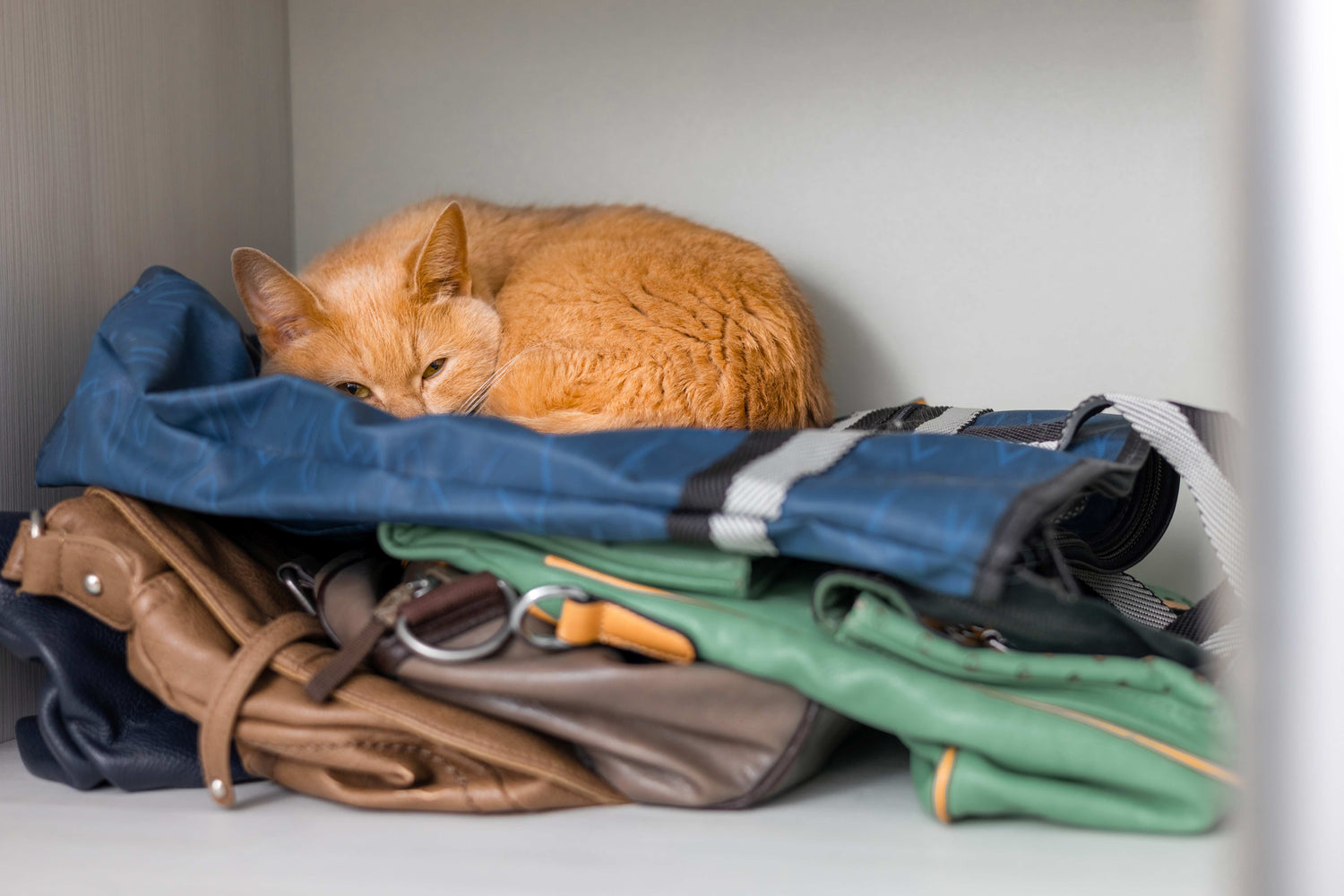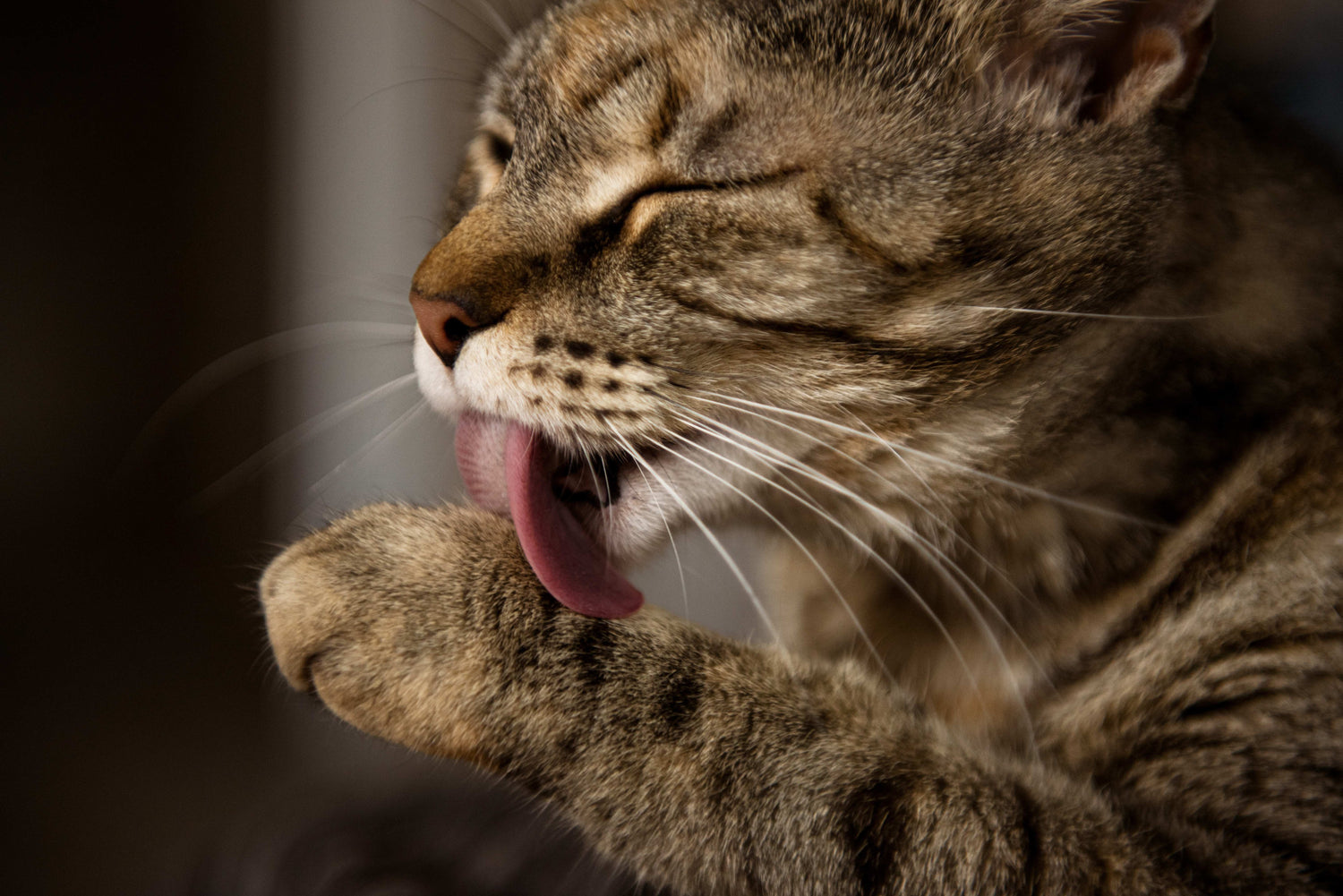Fever in Cats
If your cat's temperature is unusually high and it seems tired and weak, your cat could have a fever. Fever is very unpleasant for four-legged friends and can indicate serious illnesses. But at what temperature is there cause for concern and how should you treat your furry friend? In this article, you will learn how to recognize, measure and prevent fever in your cat and what you should do if it does happen.
When does a cat have a fever?
Fever is not an illness in itself, but an immune reaction of the body. The body increases the normal temperature to boost the immune system. The increase in temperature increases blood flow, which means that immune cells are transported better through the body. As a result, the body fights pathogens more effectively and wounds heal faster. The fever therefore serves a protective function for the cat's body. But when do we speak of a fever in a cat?
Cats normally have a body temperature between 38 and 39 degrees Celsius, which is higher than ours. High levels of activity, stress and long periods in the sun or on the heater can also quickly cause a cat's temperature to rise slightly, known as hyperthermia. So if you feel that your cat's body is warmer than usual, this is no reason to worry. Cats have a fever when their temperature is around 39.2 degrees Celsius or higher, and it becomes a serious emergency when it reaches 41 degrees at the latest.
[rebuilding course]
How do I recognize if my cat has a fever?
As with humans, measuring body temperature is the safest way to diagnose fever. However, measuring a cat's temperature is not so easy. The best way to measure your cat's body temperature is rectally using a digital thermometer. To do this, the thermometer should be carefully cleaned and disinfected beforehand and carefully inserted using medical lubricant or Vaseline. A second person should ideally help to hold the cat and calm it down so that it does not become stressed and injure itself with sudden movements.
We strongly advise against measuring the body temperature in the cat's ear: the measurement is not only inaccurate, but can also be painful for your pet and even lead to injuries to the sensitive ear. It is generally advisable to have the temperature measured by a veterinarian.
In addition to body temperature, accompanying Symptoms indicate whether your cat has a fever.
Symptoms of Fever in Cats
In addition to the increased body temperature, fever is often accompanied by other symptoms. These include:
- tiredness and fatigue
- loss of appetite
- Increased thirst
- Stiff joints and muscles
- Signs of dehydration (e.g. dry nose, dry stools)
- Aggressive behavior
- Tremble
- Retreat to a safe place
- Accelerated breathing
- Gastrointestinal complaints such as vomiting or Diarrhea
The greatest danger of fever is that the cat becomes dehydrated. If your cat drinks little , has a dry nose and dry stools, it could be dehydrated. To check its fluid balance, you can squeeze a fold of skin on your cat's back with your fingers. If this fold disappears very slowly, your cat is not taking in enough fluids. In these cases, it is advisable to consult a veterinarian who can reduce the fever and prevent dehydration.
Accelerated breathing occurs when your cat takes more than 40 breaths per minute and pants loudly. This is a reaction to the increased body temperature and an attempt to cool down with the tongue.
Since many of these symptoms are also experienced by other Since fever can be triggered by various illnesses and complaints, taking your cat's temperature is the safest way to determine fever. If the fever lasts longer than a day and occurs in combination with other symptoms, you should definitely take your cat to the vet to have it examined to determine the cause of the fever and other complaints.
Causes of Fever in Cats
Fever, as an immune-boosting tool, can have many triggers. In order to help the animal, it is therefore particularly important to determine the causes. The following pathogens, infections and complaints can cause fever:
- Viral diseases: Viral infections such as cat flu, the feline immunodeficiency virus (FIV), also known as feline AIDS, the feline leukemia virus (FeLV) or diseases caused by coronaviruses (e.g. FCoV or FIP ) can cause fever as a strong immune response of the body.
- Bacterial infections: Streptococci, chlamydia or other bacteria transmitted through contact infections cause unpleasant symptoms in the body of the infected cat and are often accompanied by fever.
- Bite wounds: Bite wounds and other wounds resulting from territorial fights between outdoor cats can become infected, fester and facilitate the transmission of viral diseases. The body of injured cats reacts with, among other things, an increased temperature.
- Parasites: An infestation with parasites such as lungworms or intestinal parasites is very harmful to four-legged friends and can cause fever.
- Fungal infections: Fungal infections can also cause a strong immune reaction including fever.
- Chronic inflammation: Inflammation in organs such as the intestines, liver, lungs, skin or heart challenges a cat's immune system.
- Tumors: Cancer can also cause fever in cats.
- Poisoning: If the cat has ingested something poisonous, the body often reacts with fever.
- Medical treatment: Medical treatments, especially vaccinations, often result in fever. A vaccination involves giving the cat a weakened form of a virus, which results in a strong immune response. Certain medications may also be perceived by the body as toxins, causing the immune system to ramp up.
Outdoor cats have a higher risk of developing a fever: through contact with other outdoor cats and street cats, they run the risk of bite wounds and other wounds during territorial fights and of becoming infected with pathogens. The risk of coming into contact with bacteria, fungi or toxins is also higher for outdoor cats. Therefore, you should pay special attention to your cat and take it to the doctor at the first sign of pain or discomfort. Vaccinations are essential to prevent viral infections. Make sure that your cat is fully vaccinated and deworm them regularly.
Treatment of Fever in Cats
If your cat has a fever, it is important to treat the cause of the high temperature appropriately. If the fever lasts longer than 24 hours or if your cat is visibly unwell, a veterinarian should make the diagnosis. Depending on what caused the fever, the doctor can administer fever-reducing medication and combat the causes. For example, antiviral drugs for viral infections, antibiotics for bacterial infections, antiparasitics for parasites or antimycotics for fungi are suitable for this. Under no circumstances should you give your animal fever-reducing or pain-relieving medication for humans on your own. These are not suitable for cats and can be life-threatening.
To make life easier for your cat when it has a fever, you should let it rest in a darkened and cool room. Since cats sweat through their paws, wet towel wraps can help. To prevent your furry friend from drying out, you should always make sure there is enough fresh water. If the animal refuses to drink on its own, you can also drip water into your cat's mouth using a syringe or pipette. Try to make drinking and eating as tasty as possible for it and, if necessary, use drinks with pieces of meat specially developed for cats .
If other symptoms occur in addition to the fever, you should also treat these as best as possible. In the case of vomiting or diarrhea, particularly stomach-friendly food .
How can fever be prevented in cats?
To prevent fever in your cat, the first thing to do is to avoid the possible causes. Bite injuries and viral diseases are caused by contact with other cats. If possible, you should therefore only let your cat outside in a safe environment, for example in your garden. If this does not work, check your cat regularly for injuries or wounds and disinfect and treat them accordingly. Also make sure that your cat receives all recommended vaccinations and deworm them regularly. If one of your cats is sick, you should separate your other cats from the sick one to prevent infection. Visit the vet regularly for check-ups and take any complaints your cat may have seriously. Also make sure that it eats and drinks enough and has a balanced, nutritious diet to strengthen its immune system.





